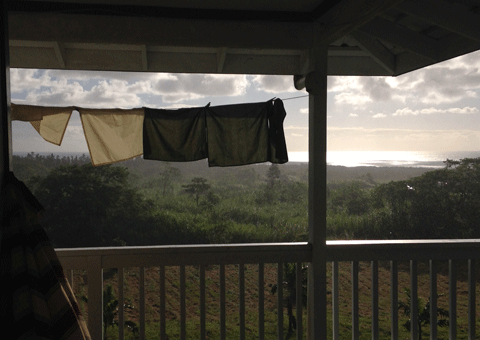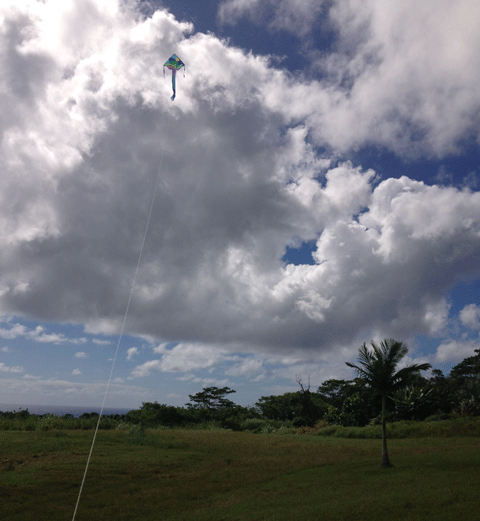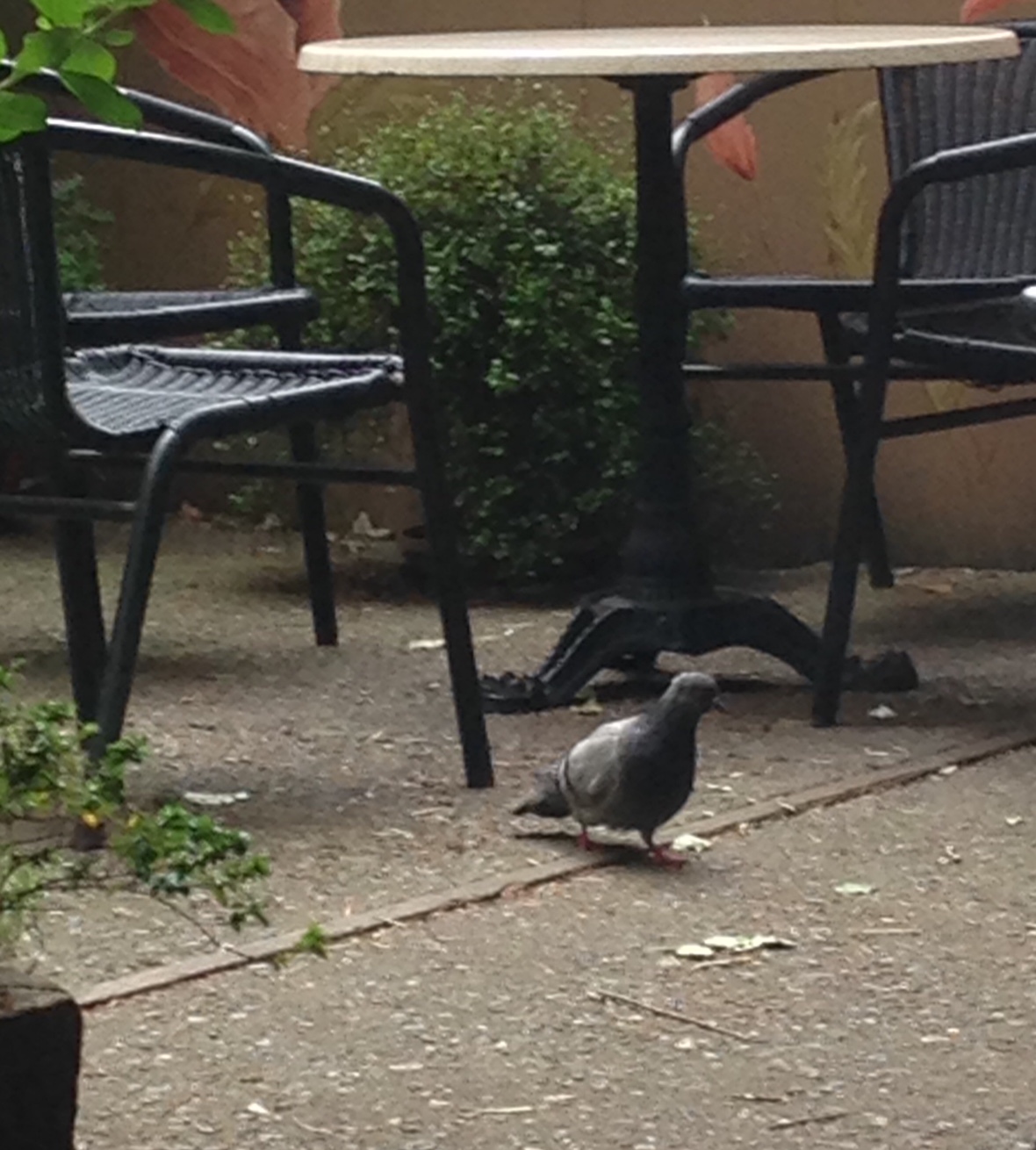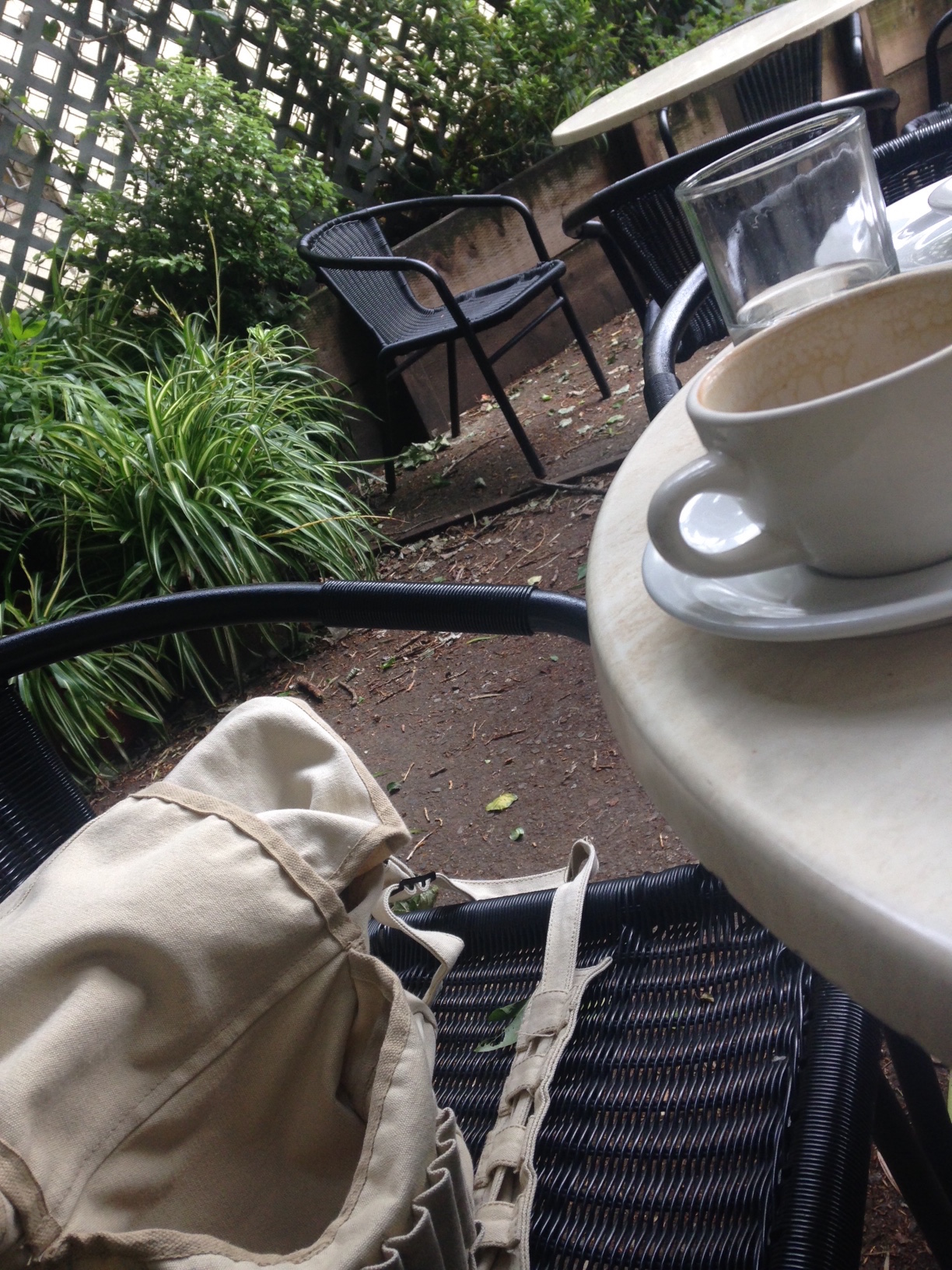RHYTHM
We sleep to the sound of rain on the roof and the occasional grunting of pigs in the yard. Long before sunrise we wake to the hollering of roosters. Morning coffee is made on the stovetop, papaya is sliced and peeled, a couple dollops of yogurt get spooned into small ceramic bowls. Lights are lit sparingly in these black hours of the waning night: we have a self-contained solar system for electricity, and after several ulcer-inducing years of learning how to live off the grid, and despite one expensive overhaul and a few incremental updates, one of us is still prefers candlelight to the prospect of drained batteries.
When the darkened earth rolls a few degrees more and begins to reveal the sun, it becomes apparent that we live in the benevolent embrace of a burning globe, nestled as we are in the circumstellar habitable zone, that slender realm of safety, an accident of existence whose odds are one in one-times-ten-to-the-28th. (Our planet is either a genius mark of intentional creation or tiny evidence of universal forces whose brilliance and limitless we will never ever fully know.)
Daytime in Puna consists of anybody’s guess, as far as the details go. But it more or less unravels the same. There is work – the East Coast conference calls begin just after the rooster alarms, around the time the kettle is whistling. That particular tedium stretches through the growing light until lunch time, which happens around 2pm Big Island time. We eat together, either at the wicker dining table or out on the lanai, weather depending. In between bites, in the interstellar bits of quiet in our brains, our eyes look outward, into the yard and around the house, and the autonomic list generator begins ratcheting up To Dos.
Lunch is followed by a wrapping-up of paying the rent. If nothing is needed from town, and work work is truly done, we head out into the yard or do maintenance. Five acres: there is never a lack of something to be done. And a wooden house in the tropics: ibid.
The tea bed refuses to thrive on neglect, so weeds rise up in revolt. Wood rot reveals itself in soggy corners of the lanai. Coconuts and other palm trees lean wearily with the weight of dying bracts. Fibrous, dark green vines of stink maile snake their way to the tops of 30-foot tall bamboo clusters like malignancies, choking off the natural growth. In the “orchard”, as we call it, juvenile fruit trees incline in the direction of the prevailing trade winds, like hula dancers bent at the waist, all of them leaning south, at the behest of the tradewinds. Lately the trees are drought-weary; a few, small orange kalamansi cling to leafless branches; elsewhere tiny buds of white emerge optimistically with the promise of future fruit. But the trunks are covered in moss and their plea is clear for a handful of fertilizer and a wheelbarrow full of compost to dress their shallow roots. The yard is in constant discussion with the climate.
As the earth rolls around further and our clothes get more caked with soil, the great maunas Loa and Kea rise like a scrim behind the property. The bright pinkish glow of sunset sweeps across the sky and then begins to fade. It happens quickly and slowly, at the same time. The fading light is our cue to gather the tools and come in. Sometimes, however, we’ll stay until the entire yard exists in bas relief: the outline of an axe on the ground, shadowy rakes and other garden implements, the profile of trees in lieu of the actual things.
(The Bible has it that Adam and Eve were kicked out of the Garden of Eden. However, when my back and legs are throbbing and I barely have breath to lug the garden equipment up the hill, I have to wonder if they didn’t flee instead, having come to realize that living in paradise is a hell of a lot of work.)
Cocktail hour beckons after showers. It is conceived as half an hour on the lanai, wine or cocktail in hand, once in a while some artery clogging chips or a plate of poke, one of us watching as the universe begins to unfold, the other one face against a glowing computer screen checking the news.
Dinner, if we have any, is usually simple – almost always something sauteed or cooked on the stovetop, since we reserve oven use for daylight. Maybe there will be a movie to watch. An updating of the list of things to do, people to call. More often than not, we’re straight to bed after dishes, by 9pm, which we refer to colloquially as “Puna midnight”.
The dinnertime rain segues into bedtime rain, and the pattern of sleep and waking repeats itself.
Such is the typical rhythm of Puna.

PERIL
When we believe we have discovered or uncovered the rhythm of a place, what we are actually doing is recounting our own habits within the rolling turmoil of space-time. There is an urge to romanticize such a rhythm, to paint it for what it is not: an idyll. True romanticism is not a blind recoloring of the facts, however. It is an occasional reward for the lives we live, a subliminal attempt to hook our petty existence onto the greater rhythms of the universe. To find a kinship with the stars and hear the hum of the universe as if it were our own.
Romanticism is important. It is a raft on a wild river, occasionally veering off into a quiet cove to let us rest and marvel at our experiences and to laud ourselves for the distance we’ve traveled thus far.
To romanticize Puna might be to say, Ahh, we live a life of simple bliss; the sun is our power and the rain is our drink. The truth is, we’ve had many difficult and profoundly doubtful days here. Sometimes it feels like the place demands more than it gives. Takes back more than it could ever deliver.
We’ve burned through battery banks, replaced the wind-shredded car tent who knows how many times. The car itself is literally held together in places with super glue and tape. Our plans for a simple wooden garage seem more like the budget for the Taj Mahal, sometimes, with some other minor calamity always taking precedence.
Everything rusts in Puna. Everything gets moldy or mildews. It takes heavy machinery to keep the jungle at bay.
This eternal dichotomy of ruin and renewal mirrors the fundamental methods of the universe: from the death of things, like tea plants or nuclear suns, arise other things, like green grass or the planets. The danger of romanticizing is that it imperils our ability to see things as they are. However, romance has a fraternal twin, the all-important need to romanticize. Done correctly, a romantic notion is nothing more than a brief expression of joy, a pronouncement of the promise of existence that’s imbued with one critical, life-altering component. Romance is an idealized view of things, fleeting though they may be. Romance affords us the ability to take slow deep breaths of appreciation in order to see the potential of things, including ourselves, as long as we keep our senses open to all of those possibilities and their perils.






